Coronavirus: Scott Morrison’s cash splash to business to save jobs
Small and medium-sized businesses will be given up to $25,000 in cash under a stimulus package worth almost $18bn.
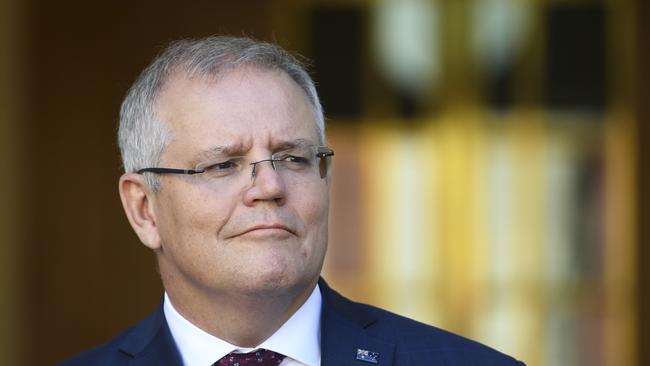
Small and medium-sized businesses employing eight million workers will be given up to $25,000 in cash, and instant asset writeoffs will be extended to 3.5 million businesses, under a stimulus package worth almost $18bn.
Pensioners will also be the key beneficiaries of a household cash payment to be announced on Thursday, under Scott Morrison’s plan to keep employers afloat and save jobs during the coronavirus crisis.
LIVE | TradingDay blog: Wall Street’s 11-year run ends
LIVE | Rolling coverage of corononavirus — WHO declares pandemic
The first instalment of the plan, which comes on top of a $2.4bn health package, will leave the door open to scaling up the stimulus beyond the budget, should the global health crisis deepen.
The government said most of the package would need to be legislated when parliament returned on March 23, putting pressure on Labor not to stand in the way.
State and territory governments will also be under similar pressure to outline their own stimulus plans when the Council of Australian Governments meets on Friday.
The small business package will include a 50 per cent wage subsidy to protect the jobs of 120,000 apprentices who are considered most at risk of being laid off in the economic downturn. The cost to the budget is estimated at $1.3bn.
The largest component will be a $6.7bn cash rollout to about 700,000 small to medium-sized businesses, worth up to $25,000 each. It will use the PAYG withholding tax system to assess the needs of struggling firms.
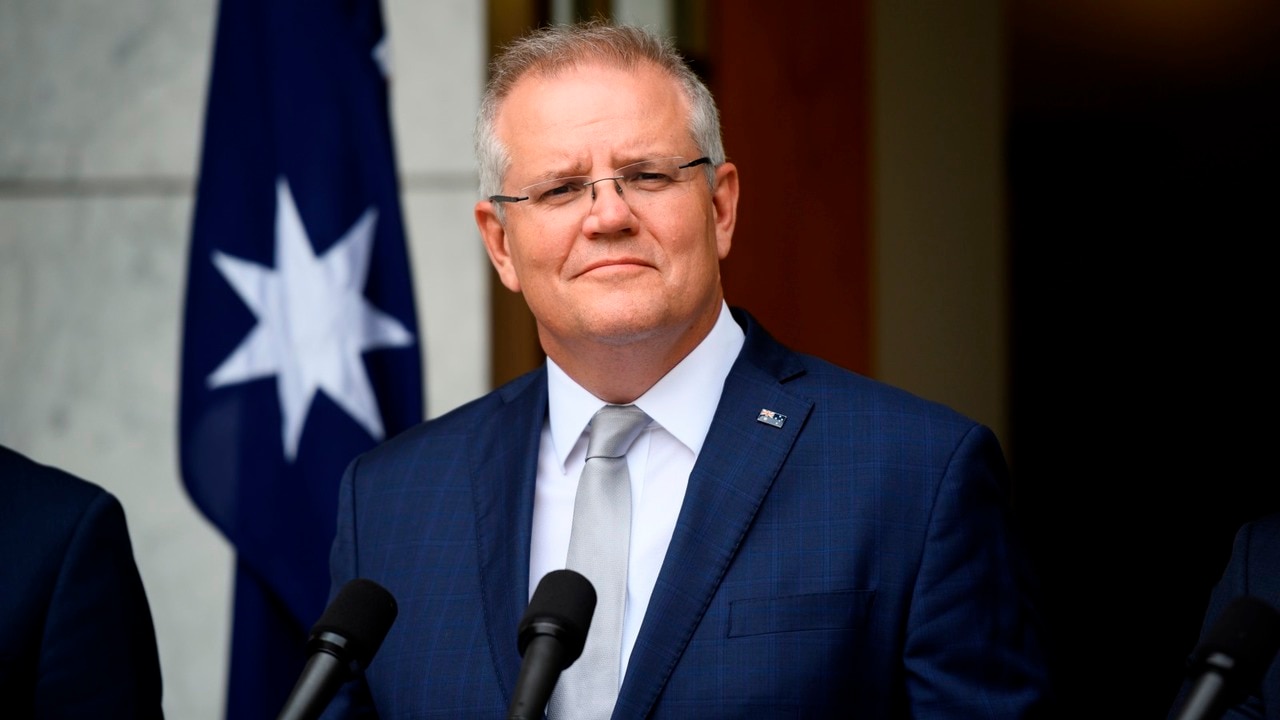
In a bid to arrest an investment crisis, the instant asset writeoff for businesses with turnover of up to $50m will be extended to those with revenues up to $500m.
The entire economic stimulus package will be unveiled on Thursday, with some components budgeted until June 30 and others over the forward estimates, leaving the government room to scale up the stimulus if needed.
The economy-boosting program designed to arrest falling domestic demand follows the release of data on Wednesday showing consumer confidence had fallen to a five-year low.
“Australia is not immune to the global coronavirus challenge but we have already taken steps to prepare for this looming international economic crisis,” the Prime Minster said. “The economy needs temporary help right now to bounce back better, so the livelihoods of all Australians are protected. We’ve balanced the budget and managed our economy so we can now use this to protect the health, wellbeing and livelihoods of Australians.”
Mr Morrison said the stimulus package would focus on keeping Australians in jobs and keeping businesses afloat.
“Getting young Australians into work and keeping them there is vital and our action will protect around 120,000 apprentice tradies and trainees,” he said.
“We will supercharge around 690,000 small and medium employers with a cashflow boost of up to $25,000 to invest and protect jobs. And we will supercharge the instant asset writeoff so businesses can immediately make new purchases of up to $150,000 and reap the rewards.”
Former Treasury secretary Martin Parkinson, who was head of the Department of Prime Minister and Cabinet under Mr Morrison, said that if the government didn’t deliver a stimulus package of about $10bn it shouldn’t bother.
“You’ve got to aim for something big,” Dr Parkinson told The Wall Street Journal.
“It is better to err on the side of being excessively stimulatory and then wind it back, than to do too little and lose confidence.”
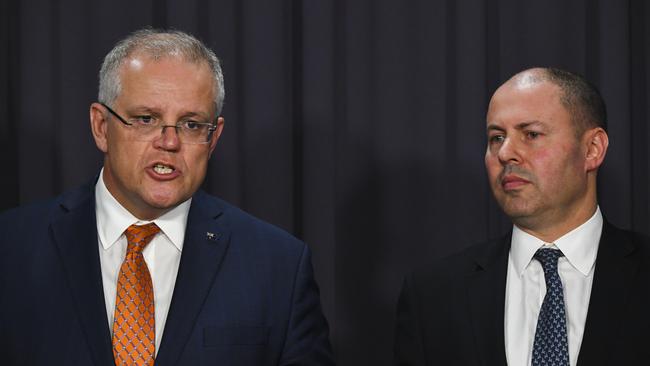
Dr Parkinson said there was a strong probability Australia would sink into recession. “The outlook is pretty grim for the June quarter. It’s a really fine line,” he said.
With only one sitting week remaining before the May 12 budget, Mr Morrison said he was confident the government would be able to move legislation quickly through parliament.
Opposition health spokesman Chris Bowen said the stimulus package was not just about its size but needed good design to achieve a “bigger bang for the buck”.
“There’s no doubt this needs to be big,” Mr Bowen told the ABC. “We’ll be constructive if it’s good. If it doesn’t go far enough, we reserve the right to say so and we reserve the right to make any criticisms but we’re also not going to stand in the way of it even if we think it needs to go farther.”
The cash grants to business will be limited to those with a turnover of under $50m, with a minimum grant of $2000 and a maximum of $25,000.
It is estimated it will benefit 690,000 businesses employing 7.8 million people.
The threshold for the instant asset writeoff will be increased from $30,000 to $150,000, and the eligibility cut-off for businesses expanded from turnover of $50m to $500m.
This is estimated to benefit 3.5 million businesses with the aim of encouraging firms not to delay investment.
It was a very constructive discussion with the Big 4 banks and the ABA yesterday about the Government and the banking sector continuing to work closely together to support Australians and the economy during this challenging period. pic.twitter.com/EhyuzjSh5F
— Josh Frydenberg (@JoshFrydenberg) March 11, 2020
The move to save apprentices, costing $1.3bn over the next two years, will offer $7000 each quarter to small businesses to keep existing trainees or re-employing those who had already lost their jobs due to shedding in the wake of coronavirus. Josh Frydenberg said the aim of the package was to keep businesses open and protect jobs.
“We are approaching the economic challenge from the coronavirus from a position of strength with the IMF and the OECD both forecasting Australia to grow faster than comparable countries including Britain, Canada, Japan and France,” the Treasurer said.
“In our response, we have been very careful not to repeat the mistakes of previous stimulus programs and not undermine the structural integrity of the budget … our first priority is to protect the health of Australians.
“Today’s announcement will provide the support businesses need to stay in business and keep Australians in a job.”
The national security committee of cabinet is due to meet on Thursday as part of a weekly assessment of travel bans imposed on foreign nationals travelling to Australia from China, Iran, South Korea and Italy.
After weeks of baulking on imposing a travel ban on Italy, the government said on Wednesday it had been added to the list following spikes in coronavirus cases and deaths.

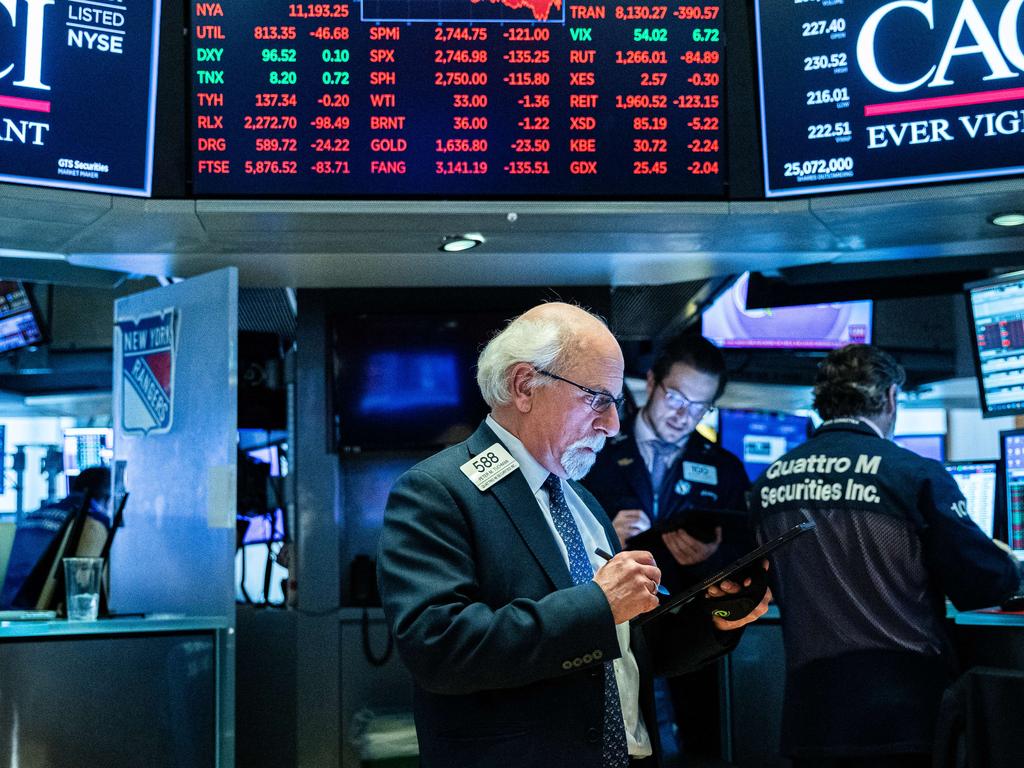
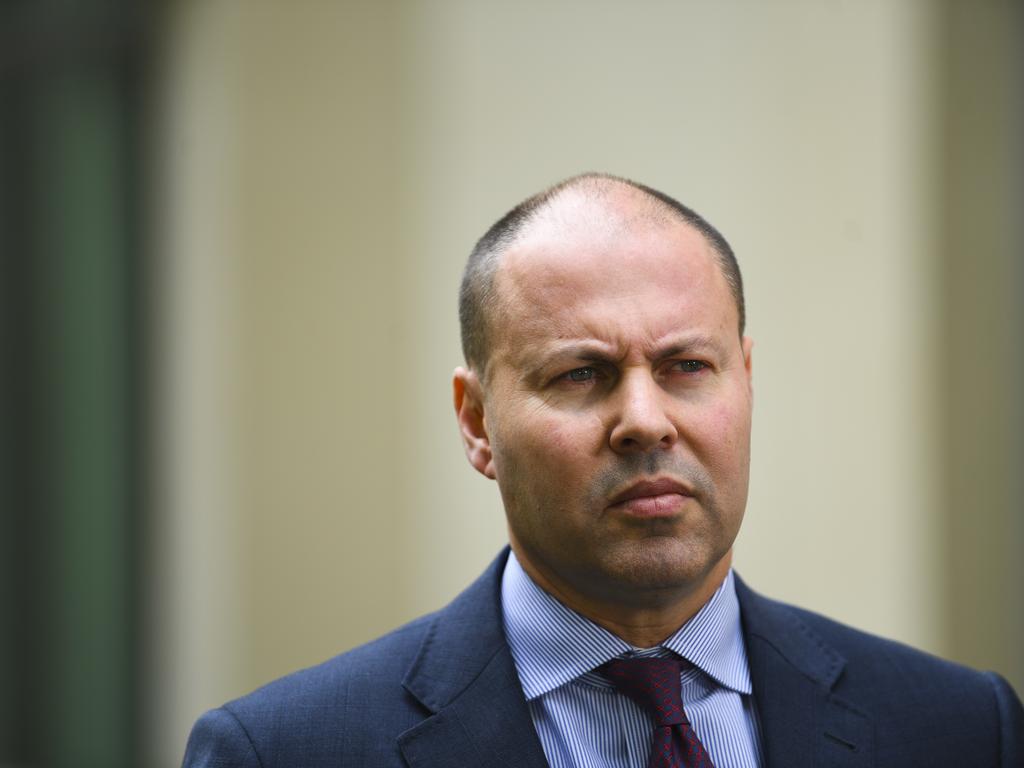

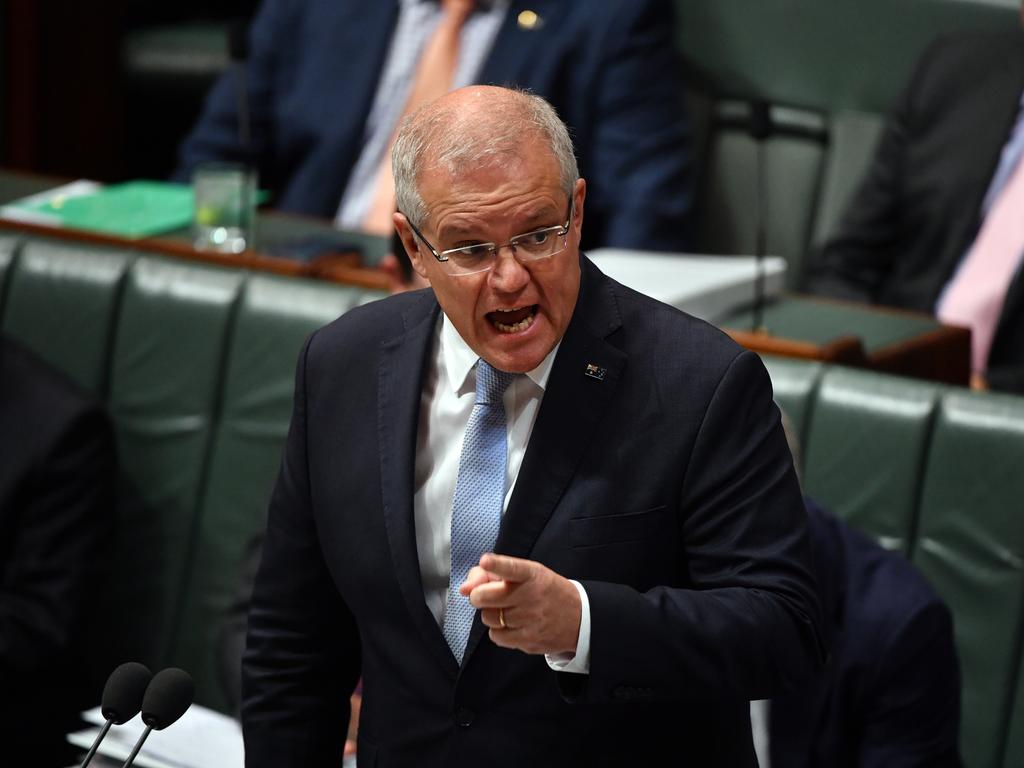


To join the conversation, please log in. Don't have an account? Register
Join the conversation, you are commenting as Logout